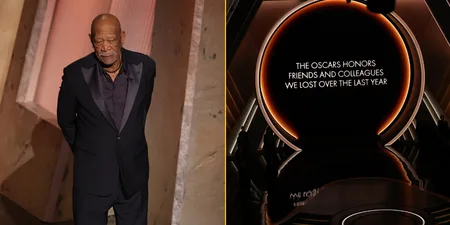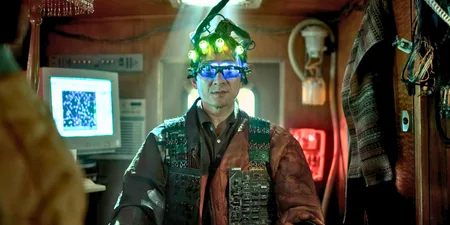There are a couple of important things to note about the news that The Matrix is getting a remake.
First, there is currently no remake underway. The project is in the earliest of early stages, with a writer in talks (not even hired) to write a treatment (not even a script) for a movie.
Second, we don’t know what kind of a movie this is. It could be a remake of the 1999 original, it could be another sequel. The Hollywood Reporter, who broke the story, suggest that Warner Bros. have seen what Disney are doing with the Star Wars franchise and may be looking to create anthology movies like Rogue One.
Third, and most importantly, the Wachowskis are not involved at this stage. Lana and Lilly were the writers, directors and architects of The Matrix – without them it would not be the groundbreaking movie that it was. It wouldn’t even be a movie at all.
So while you can rest easy for now, alarm bells will no doubt be gently ringing in your mind. It almost goes without saying that remaking The Matrix would be a monumentally bad idea, especially if the minds behind the original aren’t involved in any capacity, but more than being a bad idea, it would also be completely pointless.
Why? Because there’s nothing a remake can do that the original hasn’t already done.
The Matrix was never expected to be a hit, much less the nexus of a stylistic revolution, but it was. The film nimbly referenced a number of martial art and ‘wire fu’ movies, lifting the balletic fight choreography from Asian action cinema and plonking it in a dystopian near-future. And let’s not forget bullet-time and the advanced special effects that blew many millions of minds back in 1999.
Philosophically, well, few high-kicking action films had much to say about philosophy before The Matrix. Dealing with weighty concepts of reality and our perception of it, personal liberty and agency, and whether a happy lie is better than the miserable truth, the ideas driving The Matrix never got in the way of the thrills. It’s a perfectly-executed balancing act.
The timing of The Matrix was important to its success too. Arriving at the turn of the millennium, when more and more homes were connected to the internet and computers were further integrated into our working and personal lives, cyber-paranoia was starting to take hold. The idea that were were living inside a simulation was reaching the borders of comprehension.
The Matrix also popularised leather trench coats, but hey, no one said it was perfect.
The point is, all of these were one-offs.
The things that made The Matrix great can’t be repeated, because back in 1999 they were new and exciting. Imagine doing a bullet-time scene now – you might as well cut in a scene from Tron and try to get everyone talking about how cool all the neon is.
Hollywood has a self-destructive streak when it comes to remakes.
The way it should work is this: here’s a film that was a good idea but for whatever reason didn’t quite work, so let’s have another go. The way it actually works is this: here’s a really popular film that lots of people like, so let’s just do it again and make more money out of it.
That’s the motivation at the heart of any extension of The Matrix, as it was with the sequels, which no one thinks were necessary or particularly good. They made Keanu Reeves a lot of money though, and it’s hard not to be happy about that. If Keanu’s doing well, we’re all doing well.
Unfortunately, Hollywood has come to rely upon this system of filmmaking to bring in the big bucks. Of the 10 highest-grossing movies in 2016, only two were not based on pre-existing franchises. Unless you’re Christopher Nolan, Steven Spielberg or J.J. Abrams, original projects are tough to get off the ground.
The one thing that going back to The Matrix has in its favour is that there is a ready-made universe there, one potentially worth exploring. The Animatrix did this, setting up the events before The Matrix, the war between man and machine, and the creation of the Matrix itself.
A straight remake of The Matrix would never work, but a reboot of the franchise? Maybe.
Disney and Lucasfilm did a great job with Rogue One and expectations are high for the as-yet untitled young Han Solo movie, thanks to some smart director choices (namely Gareth Edwards and the directing tag-team of Phil Lord and Christopher Miller respectively).
If done properly, with the right talent on board (and early conversations around Michael B. Jordan as the lead are certainly encouraging), there may be some hope.
Warner Bros. are not beyond fucking things up when it comes to franchises, however. One need only look at the terrific ass-fistings they’ve been doling out to the recent DC superhero adaptations to see that there’s a problem there.
Without the Wachowskis’ vision and guidance, it’s not difficult to imagine an expanded Matrix universe getting the same treatment.









































